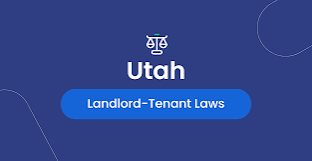Are you a landlord in Utah? Want to know your legal obligations and rights regarding lease agreements? Look no further!
This guide has all the crucial information you need to navigate the landlord-tenant relationship in Utah.
From required disclosures to understanding rent and fees, security deposits, tenant screening, and fair housing protections, we’ve got you covered.
Whether you’re a seasoned landlord or just starting out, empower yourself with the knowledge to be a successful and compliant landlord in Utah.
Required Disclosures
To comply with Utah landlord tenant laws, you must include several required disclosures in your lease agreements.
Firstly, for properties built before 1978, it’s important to inform tenants about lead-based paint hazards. This information is crucial for their safety and wellbeing.
Additionally, you must disclose the landlord or agent’s identification, including their name, address, and telephone number. This allows tenants to reach out in case of any issues or concerns.
Providing a copy of the rental agreement and rules and regulations is also mandatory. This ensures transparency and clarity regarding the terms of the lease.
Furthermore, landlords must provide a move-in/move-out checklist, allowing tenants to document the condition of the rental unit before and after their tenancy.
Lastly, tenants have the right to know about any nonrefundable fees.
Including these disclosures in your Utah lease agreement form will help maintain a fair and transparent landlord-tenant relationship.
Rent and Fees
When is rent due and what fees can you charge as a landlord in Utah?
In Utah, there’s no specified statute regarding the due date for rent. As a landlord, you have the flexibility to set the rent due date according to your agreement with the tenant. However, it’s important to clearly communicate this date in the lease agreement Utah to avoid any confusion.
When it comes to fees, Utah lease agreement laws don’t regulate application fees, so you can charge a reasonable amount for processing rental applications. For late fees, you can charge either $75 or 10% of the monthly rent, whichever is greater. It’s essential to include these fees in the lease agreement to ensure transparency and avoid any disputes with your tenants.
Security Deposits
You must collect a security deposit from your tenants in Utah. There’s no limit on the amount of the security deposit that you can collect. However, you aren’t required to pay interest on the security deposit.
When it comes to returning the security deposit, you have 30 days to do so. There’s no requirement to keep the security deposit in a separate bank account. You can withhold funds from the security deposit for unpaid rent, damages, cleaning, or other costs listed in the rental agreement.
It’s important to note that federal law prohibits discrimination based on certain protected classes, and Utah adds sexual orientation, gender identity, and source of income to the list.
Tenant Screening and Fair Housing Protections
As a landlord in Utah, it’s important to understand the tenant screening process and the fair housing protections in place to ensure you’re following the law and treating all potential renters fairly.
Under federal law, discrimination based on race, color, religion, gender, national origin, familial status, and disability is prohibited. Utah also adds sexual orientation, gender identity, and source of income to the list of protected classes.
When conducting tenant screenings, landlords must protect tenant credit information and adhere to the Fair Credit Reporting Act. While criminal background checks may be used, it’s crucial to assess on a case-by-case basis.
Additionally, landlords must provide advanced notice of 24 hours before entering a rental unit, unless specified in the rental agreement.
Familiarizing yourself with these regulations will help you navigate the tenant screening process while maintaining fair housing practices.
Conclusion
In conclusion, being a landlord in Utah requires a thorough understanding of the state’s landlord-tenant laws.
From required disclosures to rent and fees, security deposits, tenant screening, and fair housing protections, there are many important aspects to consider.
By familiarizing yourself with these laws, you can ensure that you’re fulfilling your legal obligations and providing a fair and compliant rental experience for your tenants.
Stay informed and be a successful and responsible landlord in Utah.
